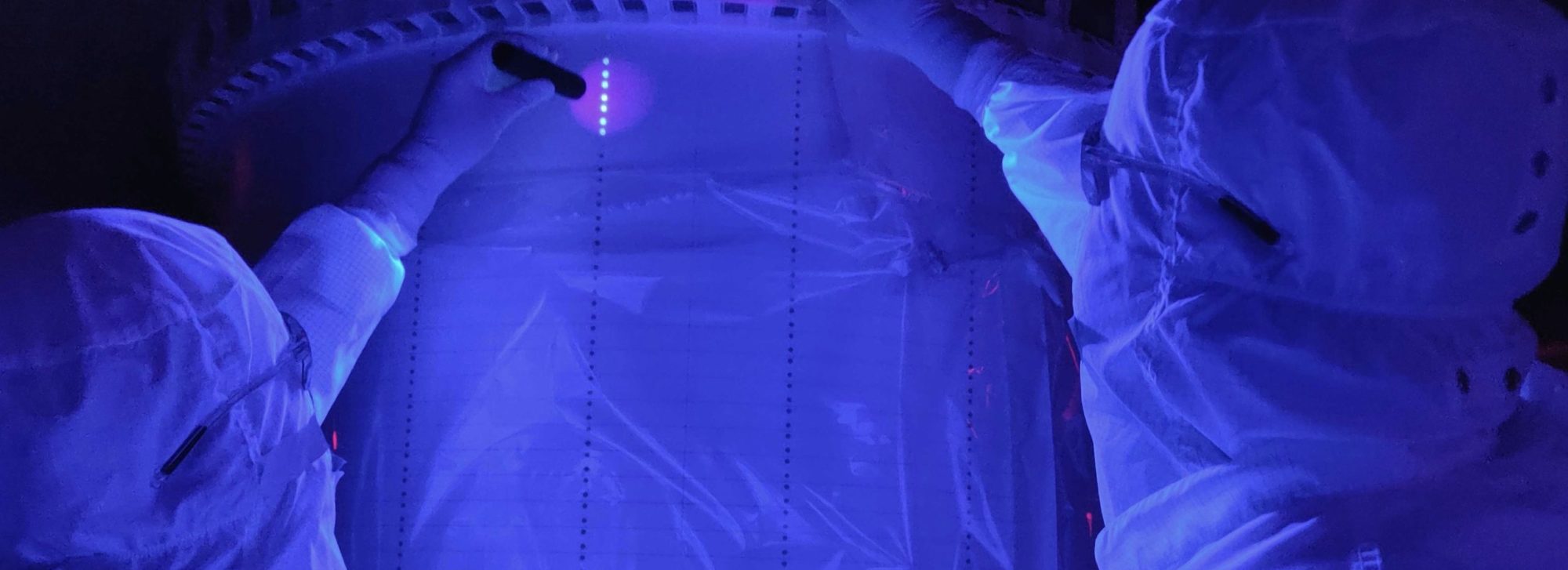
New Results from LZ Dark Matter Experiment
Collaborators on the LUX-ZEPLIN experiment presented their latest results on Monday December 8, 2025, starting at 10 am Mountain Time. The webinar detailing the scientific results was broadcast from a mile underground at the Sanford Underground Research Facility.
Webinar link: – https://sanfordlab.org/lz-2025-result (Recording available at this site)
The experiment has released a paper preprint, and uploaded to arXiv.
Preprint (PDF)
Presentation Slides (PDF)
Please contact the LZ Spokesperson (Richard Gaitskell) and LBL Press Office (Lauren Biron) for further details.
Previous Results from LZ
Our PREVIOUS 2024 results (PRL published in 2025) can be accessed at these links: See here for the full press release and (PRL, and arXiv here) for the paper. Presentation of the results happened in August 2024 at TeVPA and LIDINE conferences. See also our Publications page.
Details of the LZ Experiment
LUX-ZEPLIN (LZ) is a next generation dark matter experiment, selected by the US Department of Energy (DOE) as one of the three ‘G2’ (for Generation 2) dark matter experiments. Located at the 4850′ level of the Sanford Underground Research Facility in Lead, SD, the experiment utilizes a two-phase time projection chamber (TPC), containing seven active tonnes of liquid xenon, to search for dark matter particles. Auxiliary veto detectors, including a liquid scintillator outer detector, improve rejection of unwanted background events in the central region of the detector. LZ has been designed to improve on the sensitivity of the prior generation of experiment by a factor of 50 or more. More details on the construction of the LZ detector can be found here, and the projected sensitivity of the experiment is described here.
The LZ collaboration consists of about 250 scientists in 39 institutions in the U.S., U.K., Portugal, Switzerland, South Korea and Australia. The name LZ stems from the merger of two previous dark matter detection experiments: LUX (Large Underground Xenon) and ZEPLIN (ZonEd Proportional scintillation in LIquid Noble gases).
The LZ project received CD-4 approval for completion in August, 2020.
With its first science run in 2021 LZ delivered the world-leading sensitivity in the search for dark matter in form of galactic WIMPs from only 6% of its planned exposure. The latest results demonstrate LZ’s unique sensitivity and reach to dark matter physics. With unprecedented potential for discovery, the LZ experiment is presently accruing science data towards a total 1,000 live day exposure. LZ will sweep theoretically very well motivated but previously inaccessible and completely uncharted electroweak parameter space that could deliver a the world’s first observation of dark matter in the next few years.
Contacts
Spokesperson: Rick Gaitskell, Brown University, richard_gaitskell@brown.edu
Operations Manager: Simon Fiorucci, Berkeley Lab, sfiorucci@lbl.gov
Follow us on Twitter: @lzdarkmatter
